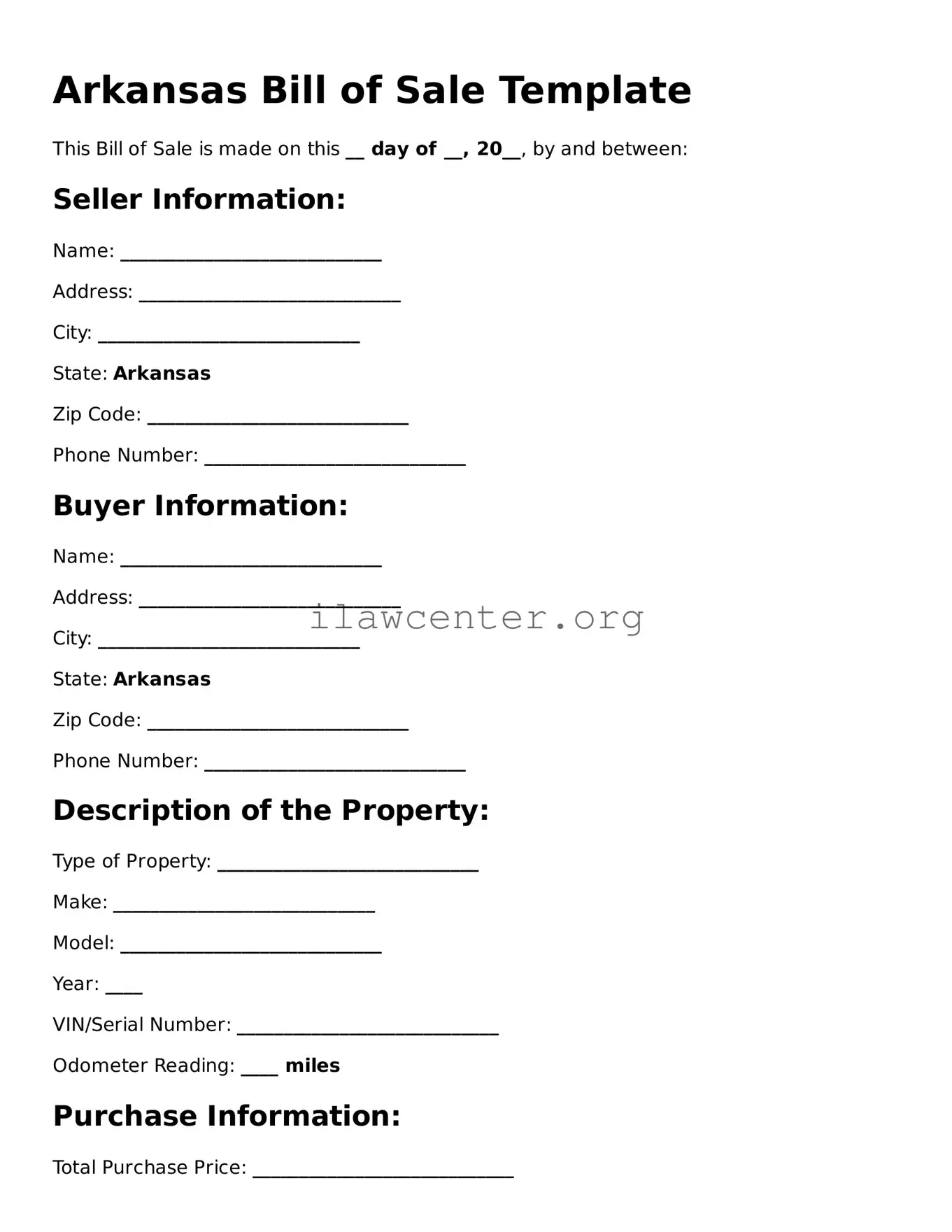Instructions on Utilizing Arkansas Bill of Sale
After gathering all necessary information and understanding the purpose of the Bill of Sale, you're ready to begin filling out the form. Careful attention to detail will help ensure that all required information is provided correctly.
- Obtain the Arkansas Bill of Sale form from a reliable source.
- Enter the date of the transaction at the top of the form.
- Fill in the names and addresses of both the seller and the buyer. Ensure accuracy in spelling and format.
- Provide a description of the item being sold. Be as detailed as possible, including make, model, year, and identification numbers if applicable.
- Specify the sale price of the item. Indicate the currency to avoid confusion.
- If applicable, indicate any warranties or guarantees offered by the seller.
- Both the seller and buyer should sign and date the form to validate the transaction.
- Make copies of the completed Bill of Sale for both parties' records.
